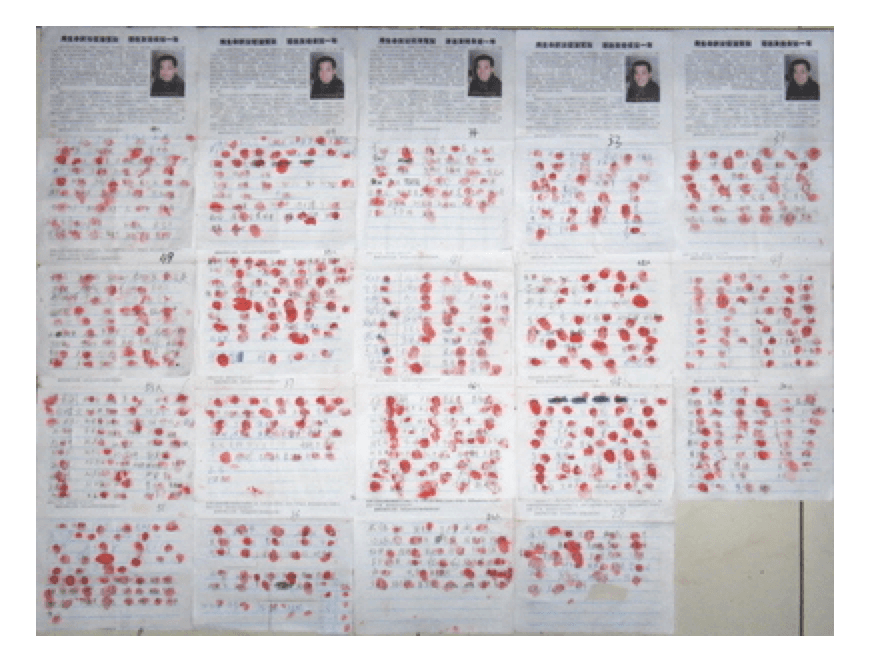807 residents of the northern Chinese city of Tianjin recently signed a petition calling for the release of a Falun Gong practitioner who has been on a hunger strike since April 2012. This latest petition continues a five-year-long trend of Chinese citizens mounting large-scale petition drives on behalf of Falun Gong adherents.
According to Minghui.org, a website maintained by Falun Gong practitioners that reports on the persecution of the spiritual practice in China, Mr. Hua Lianyou and his wife, Ms. Tian, were arrested on April 24, 2012. Police ransacked their Tianjin home and confiscated Falun Gong books and their computer and printer.
This was the second time Hua has been imprisoned for his belief in Falun Gong. In 2001 he was sentenced to five years and is reported to have suffered severe torture, which left him with mental problems for several years. His daughter was 11 years old when he was first imprisoned.
Hua first began practicing Falun Gong in 1997. He had been let go from his job after he suffered slipped discs. After he took up Falun Gong, his back healed in three days. Seeing the extraordinary change in her husband, Ms. Tian also began practicing.
After this more recent arrest, Mr. Hua went on a hunger strike on May 23, 2012 to protest the persecution of Falun Gong.
Hua was scheduled to be tried on Sept. 11, 2012 at the Beichen Court in Tianjin. The family later learned that the court officials left by an underground parking garage and went to the prison hospital, where they tried Hua in secret, sentencing him to seven years.
Public security authorities had seized all of the files gathered by a lawyer hired by the family, and pressured his law firm to terminate his employment in an effort to keep him from defending Hua. When two other lawyers hired by the family from Beijing showed up on Sept. 11, they were not allowed to attend the trial.
The family was informed of the sentence given Hua on Oct. 9, after the 20-day-period allowed for appeals had passed.
According to a Minghui report, Ms. Tian visited Hua in the prison hospital on May 29, 2013 and reported that, although weak and emaciated, he was still on hunger strike. The hospital has been force-feeding him and also has put him on an IV, according to Ms. Tian.
When Ms. Tian demanded that Hua be released from prison for health reasons, officials refused.
Hua’s friends and relatives have since appealed to the public to sign a petition for his release, and in one month collected 807 signatures with thumb prints. Affixing a thumb print with red ink is the traditional Chinese way of solemnly signing an important document.
Many people expressed their sympathy for Mr. Hua and Falun Gong, and their disdain of the communist authorities.
A local vendor said she understands the nature of the persecution, adding, “I am not afraid to admit that I signed my name.”
Signing such a petition is a brave act that challenges the Chinese regime.
Since the persecution of Falun Gong began in July 1999, the Chinese people have been inundated with propaganda that demonizes Falun Gong.
In addition, the fear of losing personal benefits, bonuses, promotions, and jobs has caused many people to assist the authorities in the persecution or to turn a deaf ear to the reports of torture practitioners have been subjected to in prisons and labor camps.
But public opinion of Falun Gong in China has been turning. Rescue petition drives similar to the one for Hua are on the rise across China. Since 2008 the New York based Falun Dafa Information Center (FDIC) has learned of nearly three dozen, with the majority having occurred in the last two years.
Five petitions—some with over 10,000 signatures—were reported earlier this year, continuing a growing trend across China to rescue local residents who practice Falun Gong, despite official repression, the FDIC said in an April 29 article.
“The growing number of petitions demonstrates that the regime’s endless stream of propaganda vilifying Falun Gong is not having the effect it once had,” said Levi Browde, director of the Falun Dafa Information Center. “People are seeing through it.”
With translation by Hao Gao.
Read the original Chinese article.




